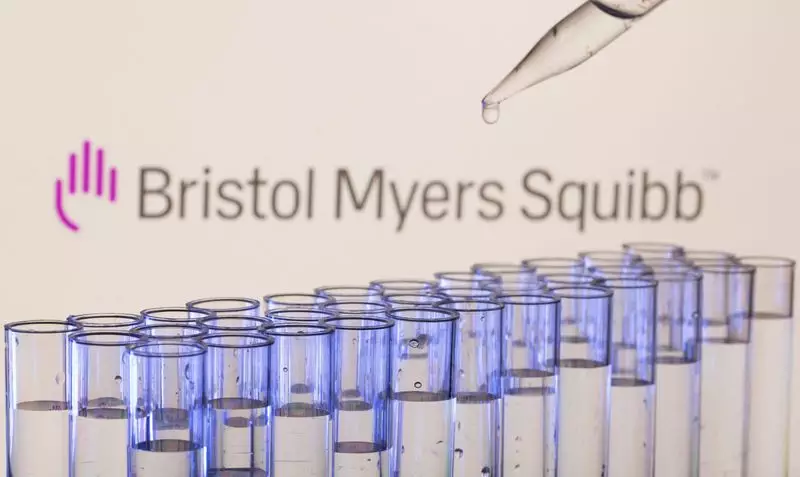The landscape of cancer treatment is continually evolving, driven by innovation and a deepening understanding of the disease’s biology. Recently, the U.S. Food and Drug Administration (FDA) made headlines by approving an injectible version of Opdivo, a leading cancer drug developed by Bristol Myers Squibb. This development marks a significant milestone in the treatment of various forms of cancer, expanding accessibility and convenience for patients.
Traditionally, Opdivo has been administered via intravenous infusions, a method that requires considerable time and medical oversight. This not only puts a strain on healthcare resources but can also be cumbersome for patients who attend regular appointments for treatment. The newly approved version, branded Opdivo Qvantig, shifts the administration model dramatically. Patients will now benefit from the ease of subcutaneous injections, which can be completed in just minutes compared to the hours required for IV infusions. This improvement promises to enhance the overall patient experience, as it can be administered in a more flexible setting, possibly even at home.
The significance of Opdivo Qvantig extends beyond mere convenience. Improved accessibility can lead to better adherence to treatment regimens. Studies indicate that when patients find the administration of treatment more straightforward, they are less likely to miss doses, enhancing the likelihood of positive outcomes. Furthermore, this more efficient mode of delivery could potentially reduce the emotional and physical burden associated with lengthy infusion appointments, providing a holistic improvement in patient quality of life.
From a business perspective, Bristol Myers Squibb’s decision to create an injectable version of Opdivo signals a proactive strategy to safeguard its market position. The existing intravenous formulation currently carries a hefty price tag, with treatments ranging from approximately $7,635 for lower doses to over $15,000 for higher doses every few weeks. By introducing Opdivo Qvantig at similar pricing, the company may protect its revenue streams as it faces impending patent expirations for other blockbuster drugs like Revlimid and Eliquis. This strategic move aligns with broader trends in the pharmaceutical industry, where companies are increasingly focused on the development of convenient, cost-effective therapies to maintain market share.
The provisional approval of Opdivo Qvantig is underpinned by robust clinical data demonstrating its comparable efficacy to the traditional IV formulation for treating advanced kidney cancer in patients who have undergone previous therapies. This evidence not only reassures clinicians about the effectiveness of the new delivery method but also paves the way for exploring additional applications across a wider range of solid tumor indications. As cancer treatment continues to progress, the reliance on innovative approaches like those employed in Opdivo Qvantig will be crucial.
The FDA’s approval of injectable Opdivo Qvantig represents a noteworthy advancement in oncology pharmaceutical treatments. This transition not only enhances patient convenience but also supports the strategic positioning of Bristol Myers Squibb in a competitive marketplace. As healthcare professionals and patients alike begin to reap the benefits of this new formulation, the impact on treatment outcomes and patient satisfaction may be profound, heralding a new era in cancer management.

